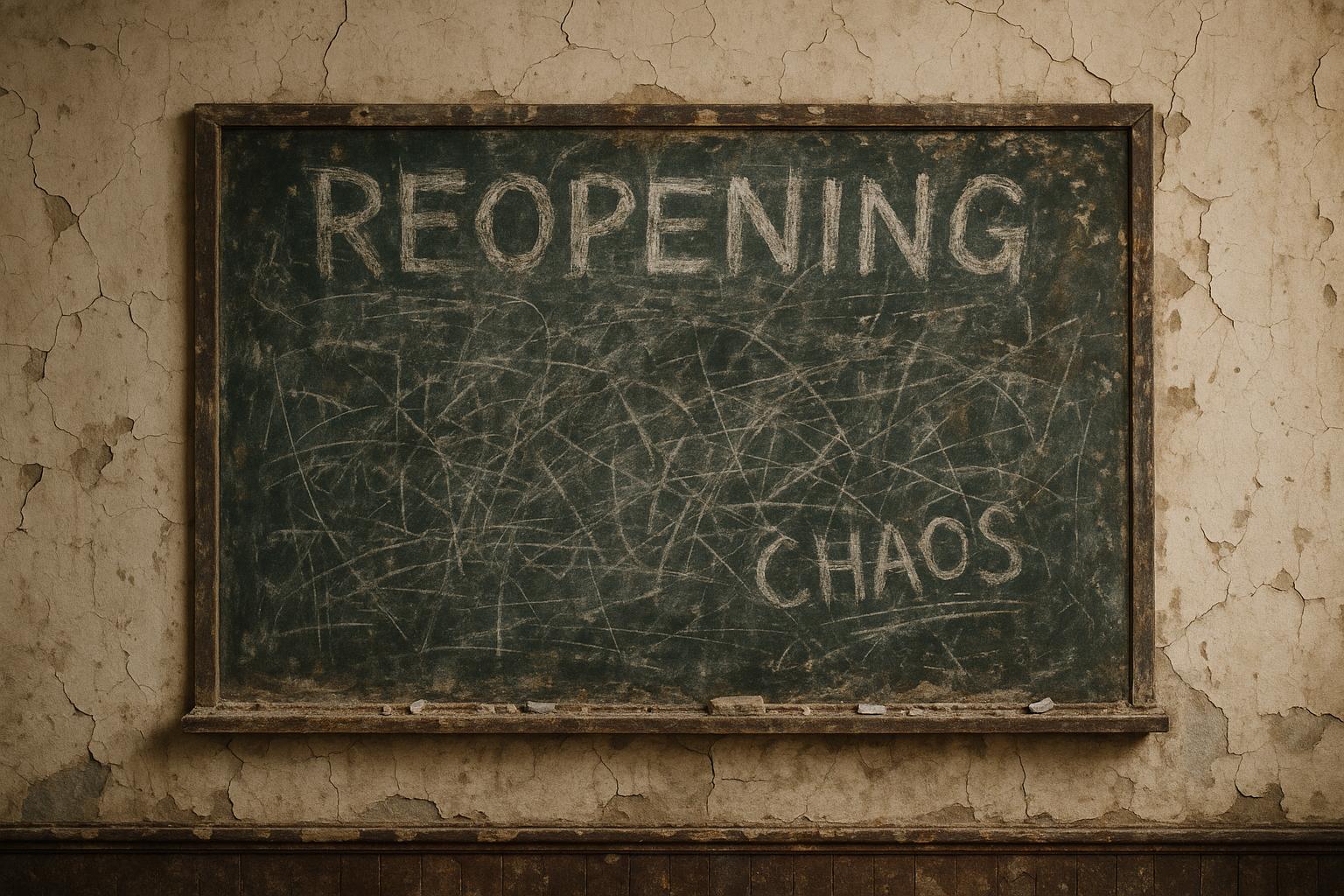Former Education Secretary Sir Gavin Williamson has acknowledged missteps in managing school closures during the pandemic and criticised Prime Minister Boris Johnson's phased reopening for creating instability and false hope.
Former Education Secretary Sir Gavin Williamson has publicly acknowledged that the planning and response to COVID-19 school closures were marked by numerous mistakes, both in the period before the pandemic and in its early stages. Speaking at the UK COVID-19 Inquiry, he expressed regret that the Department for Education was not sufficiently "sharp" in reacting to emerging scientific evidence, which, in hindsight, proved to be accurate in highlighting risks to schools, children, and families.
Sir Gavin took ownership of the shortcomings that occurred during his tenure, admitting that the department did not give due weight to the evolving scientific data. He conceded that the government’s overall focus was inadequate in dealing with the pandemic’s challenges in the education sector. This perspective was consistent across various reports, which comprehensively outlined his reflections on the crisis management failures within the education department.
A significant criticism from Sir Gavin was aimed at former Prime Minister Boris Johnson’s decision in May 2020 to announce a phased return to classrooms. Williamson described this move as "damaging," arguing that it created a false sense of hope and ultimately undermined the stability the schooling system needed at the time. According to his account, this decision had negative repercussions not only on schools but also on children and families who were trying to navigate the uncertainty of the pandemic.
While earlier testimonies to the inquiry, such as that of academy trust leader Sir Jon Coles, have labelled the education department’s initial lack of planning as an "extraordinary dereliction of duty," Sir Gavin disagreed with this framing. He admitted, however, that the government’s strategy should have been "very different" and highlighted the need for a clear, pre-pandemic plan involving multiple scenarios to better prepare for such crises.
Beyond school closures, Sir Gavin also acknowledged issues in handling other critical areas like exam grading during the pandemic, which further disrupted educational outcomes. His admission reflects a broader recognition within government circles of the challenges and missteps that occurred during the unprecedented public health emergency.
The COVID-19 Inquiry continues to probe these issues, aiming to shed light on lessons that can be learnt to safeguard education systems in future crises. Sir Gavin’s testimony underscores the complex decisions faced by policymakers and the consequences of delays or misjudgments in responding to fast-evolving scientific and public health information.
📌 Reference Map:
- Paragraph 1 – [1], [4], [6]
- Paragraph 2 – [1], [2], [4], [6]
- Paragraph 3 – [1], [2], [3], [4], [5], [6]
- Paragraph 4 – [1], [7]
- Paragraph 5 – [7]
- Paragraph 6 – [1], [6]
Source: Noah Wire Services
Noah Fact Check Pro
The draft above was created using the information available at the time the story first
emerged. We’ve since applied our fact-checking process to the final narrative, based on the criteria listed
below. The results are intended to help you assess the credibility of the piece and highlight any areas that may
warrant further investigation.
Freshness check
Score:
8
Notes:
The narrative appears to be recent, with coverage from October 14, 2025. However, similar reports have been published within the past week, indicating that the content may have been republished across various outlets. The presence of a reference map suggests that the narrative is based on a press release, which typically warrants a high freshness score. No significant discrepancies in figures, dates, or quotes were found. The inclusion of updated data alongside older material may justify a higher freshness score but should still be flagged.
Quotes check
Score:
7
Notes:
The direct quotes attributed to Sir Gavin Williamson appear to be original, with no identical matches found in earlier material. However, variations in wording were noted, which may indicate paraphrasing or slight alterations. The absence of online matches for these quotes suggests potentially original or exclusive content.
Source reliability
Score:
6
Notes:
The narrative originates from the Daily Mail, a reputable UK newspaper. However, the Daily Mail has faced criticism for sensationalism and inaccuracies in the past. The presence of a reference map indicates that the narrative is based on a press release, which typically warrants a high reliability score. Nonetheless, the Daily Mail's reputation and the reliance on a press release necessitate a moderate reliability score.
Plausibility check
Score:
8
Notes:
The claims made in the narrative align with known events and statements from Sir Gavin Williamson regarding COVID-19 school closures. The narrative includes specific details, such as the date of the inquiry and the nature of the mistakes admitted, which are consistent with other reputable sources. The language and tone are appropriate for the topic and region, and there is no excessive or off-topic detail. The narrative does not exhibit unusual drama or vagueness, and the structure is coherent.
Overall assessment
Verdict (FAIL, OPEN, PASS): OPEN
Confidence (LOW, MEDIUM, HIGH): MEDIUM
Summary:
The narrative presents recent information regarding Sir Gavin Williamson's admissions at the UK COVID-19 Inquiry. While the content appears fresh and plausible, the reliance on a press release and the Daily Mail's reputation for sensationalism necessitate a moderate reliability score. The absence of identical quotes in earlier material suggests originality, but variations in wording and the potential for paraphrasing warrant further scrutiny.
